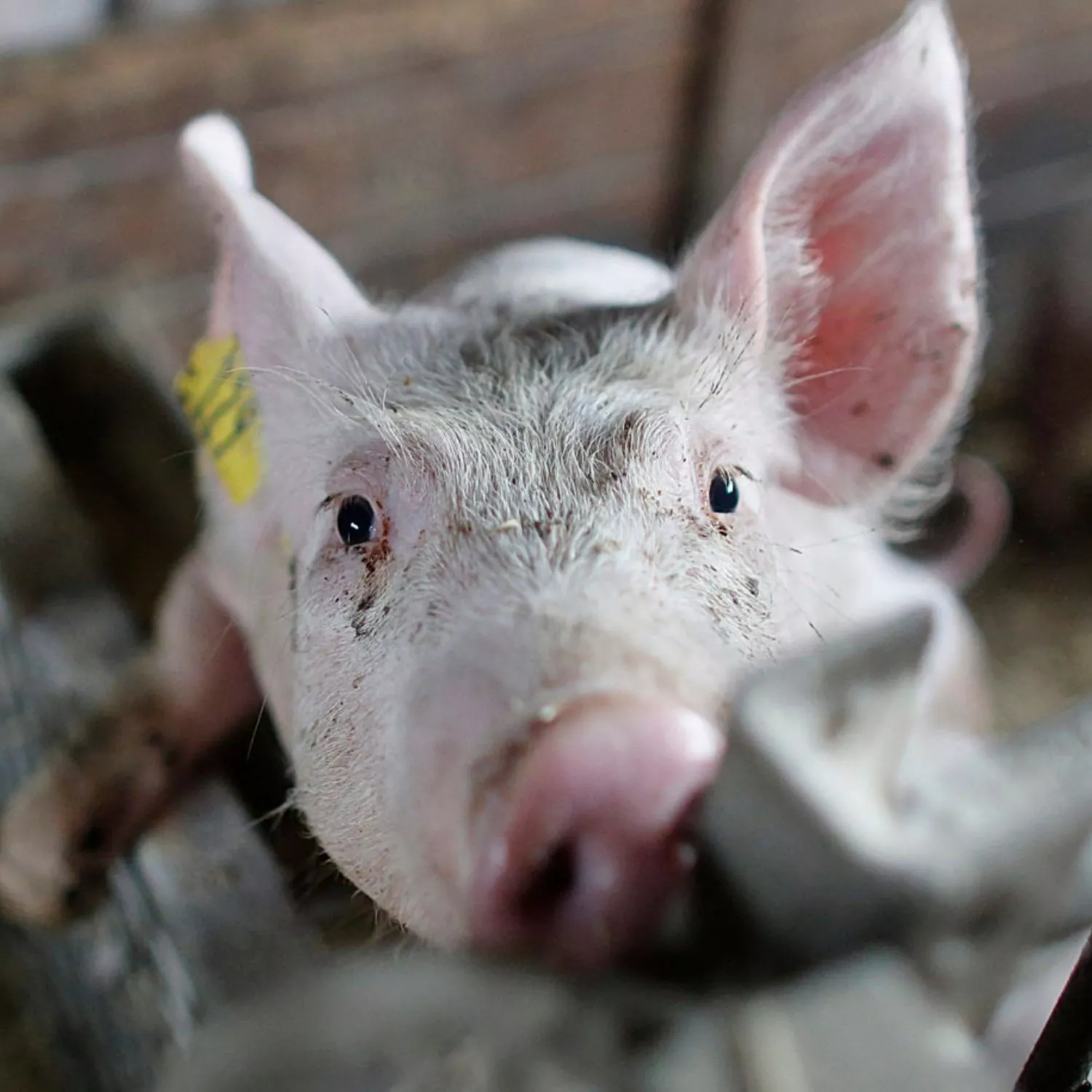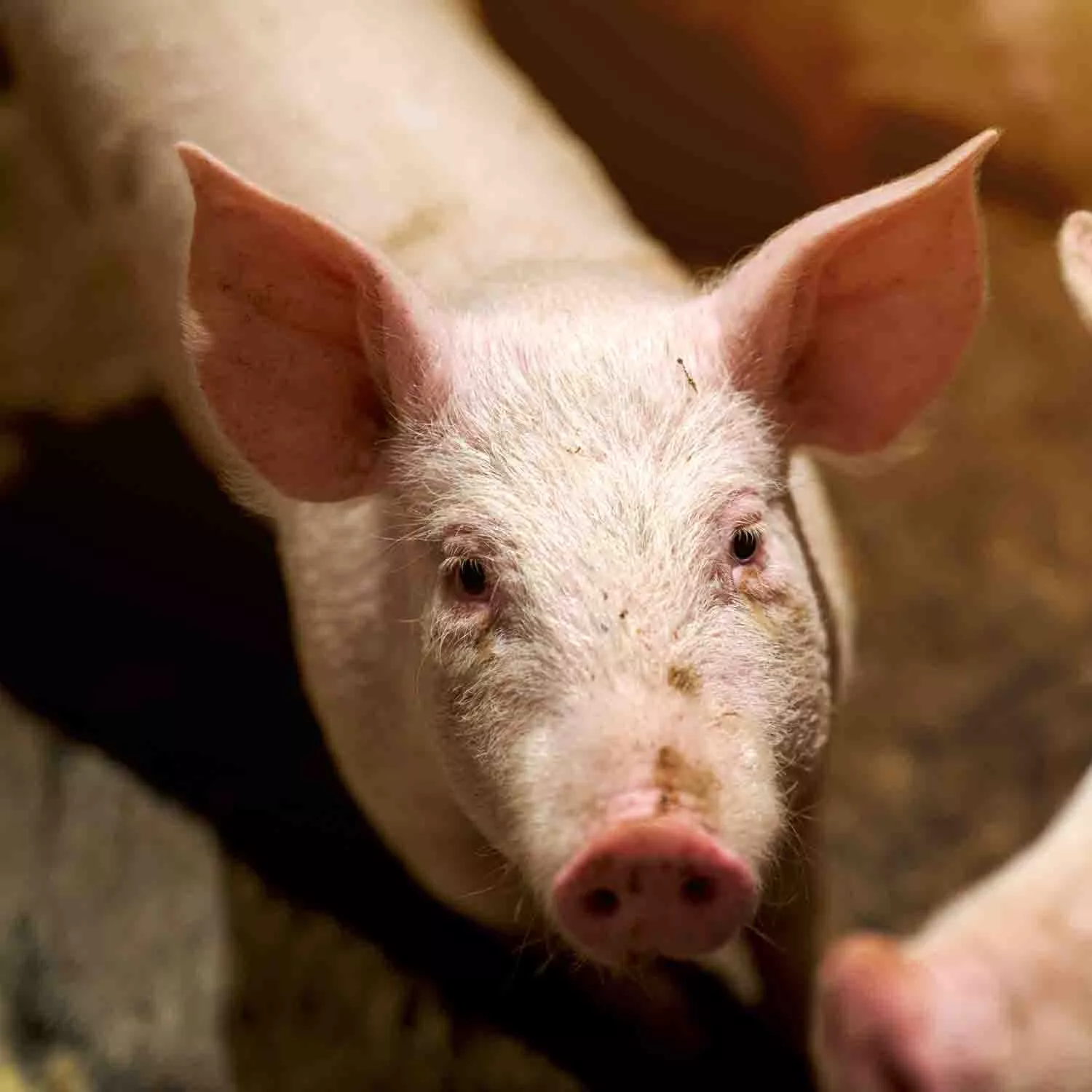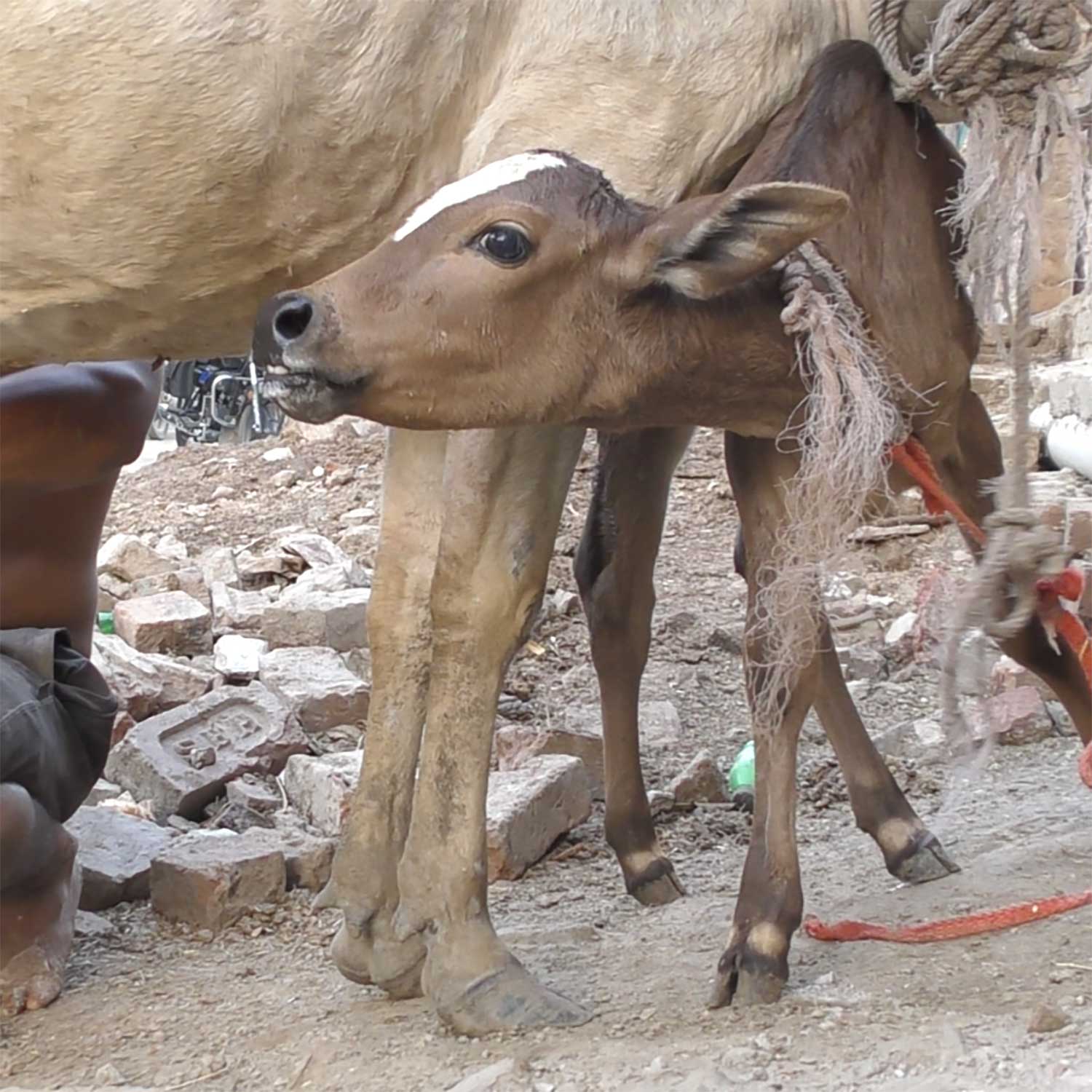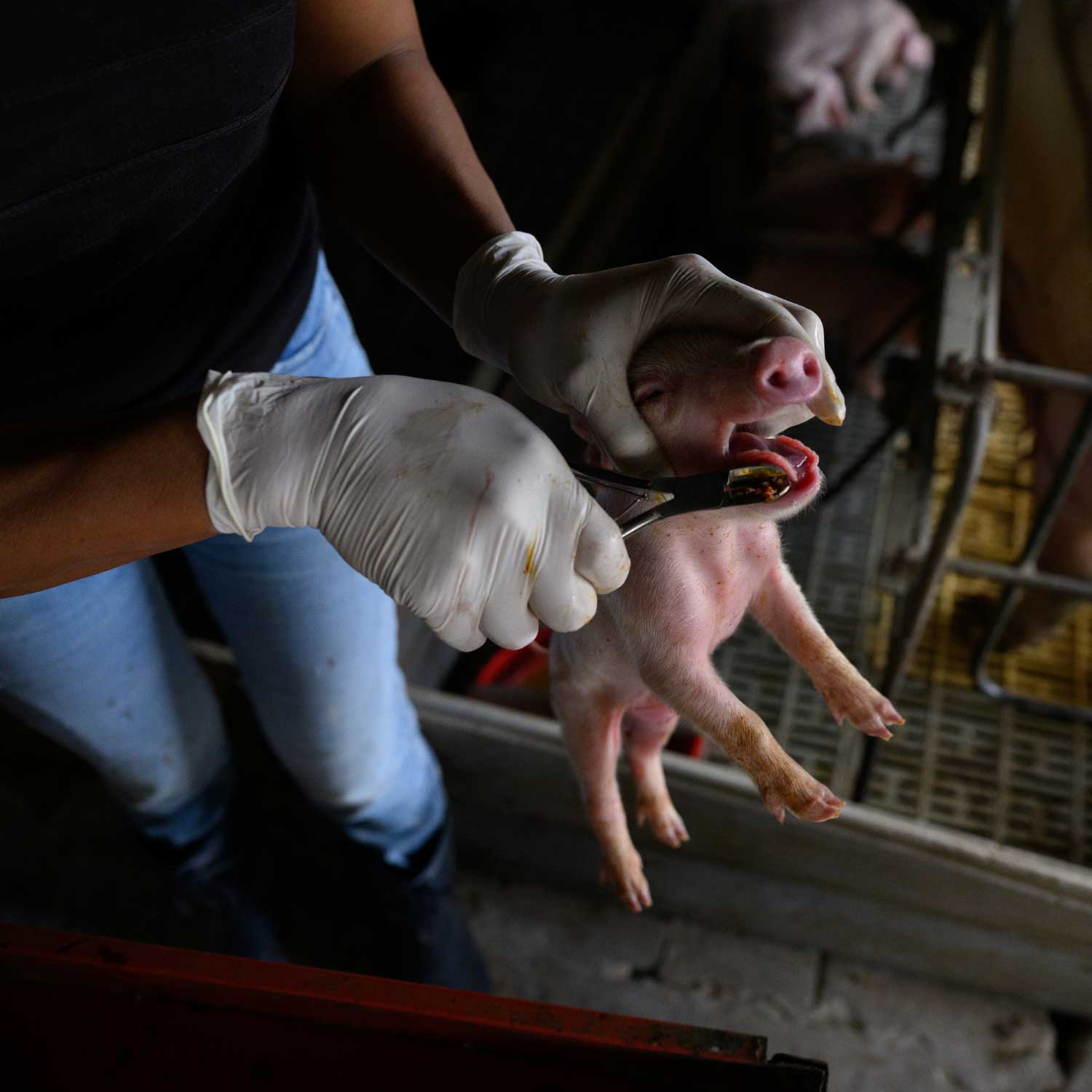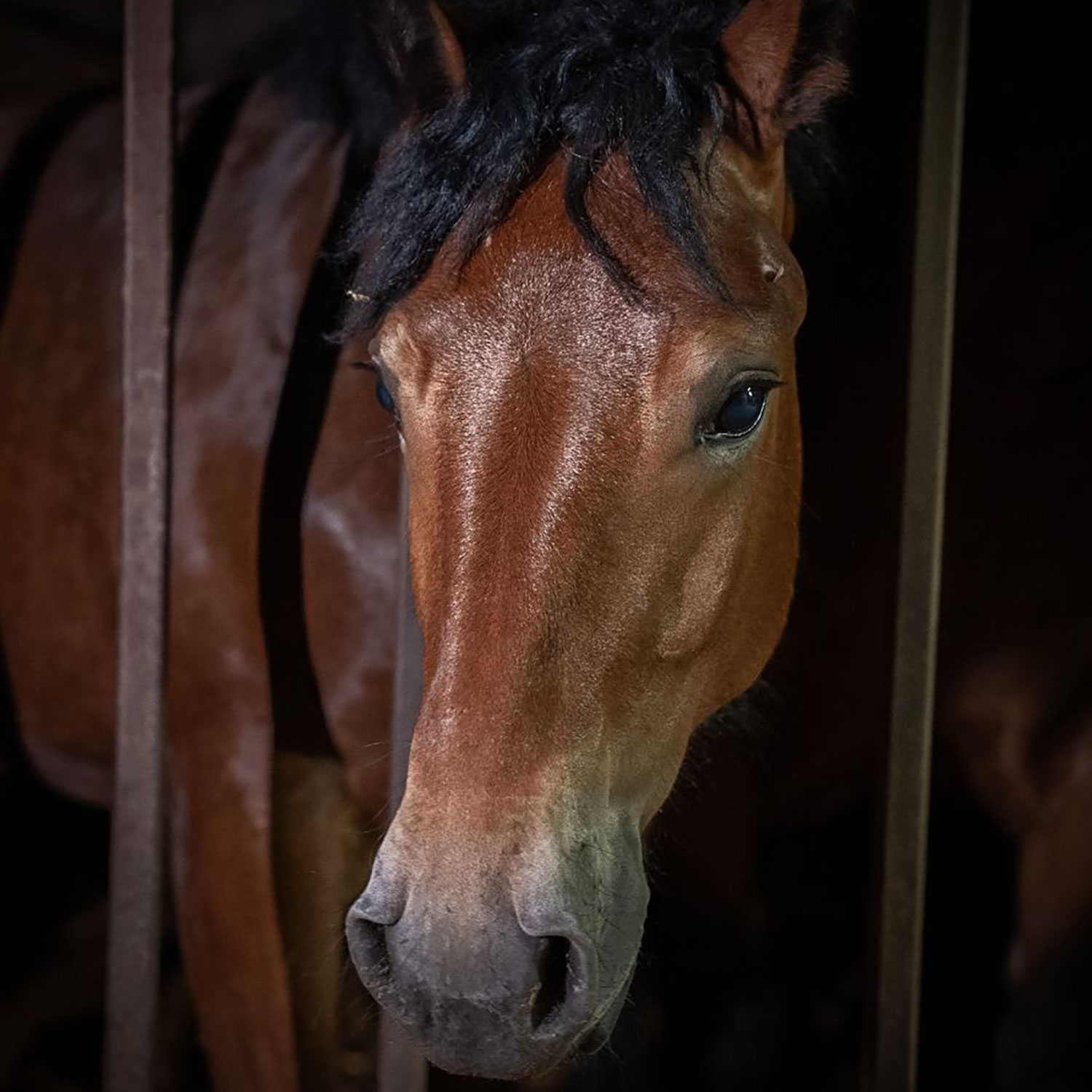Advocates to challenge approval of UK salmon mega-farm
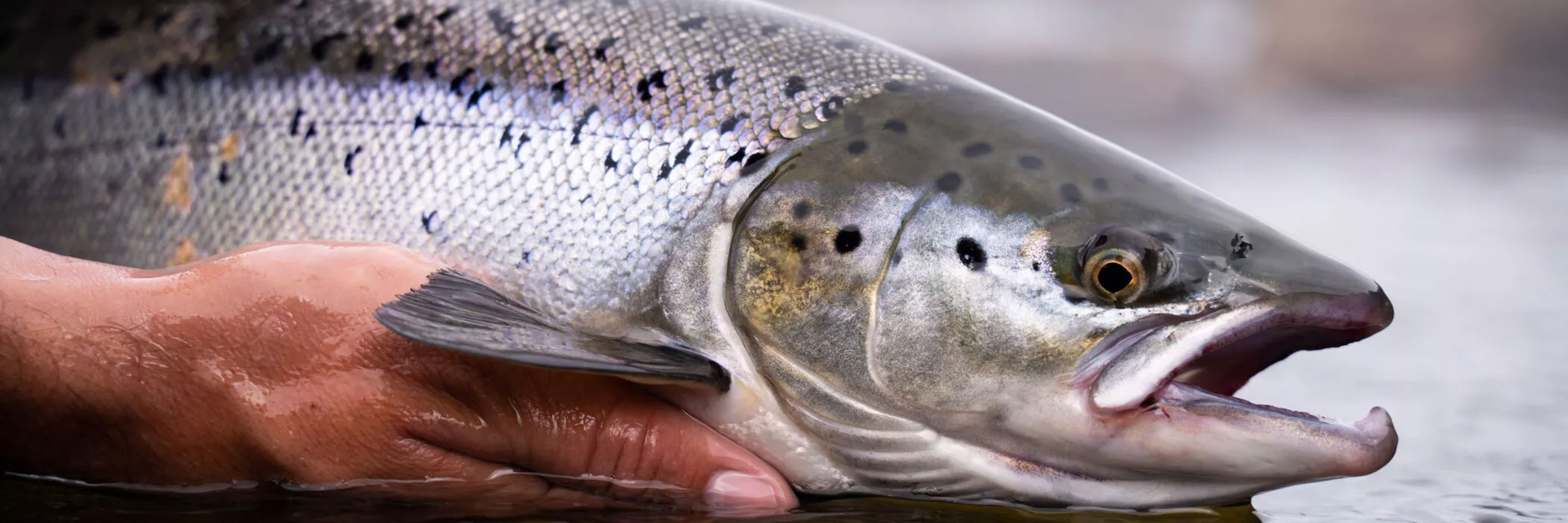
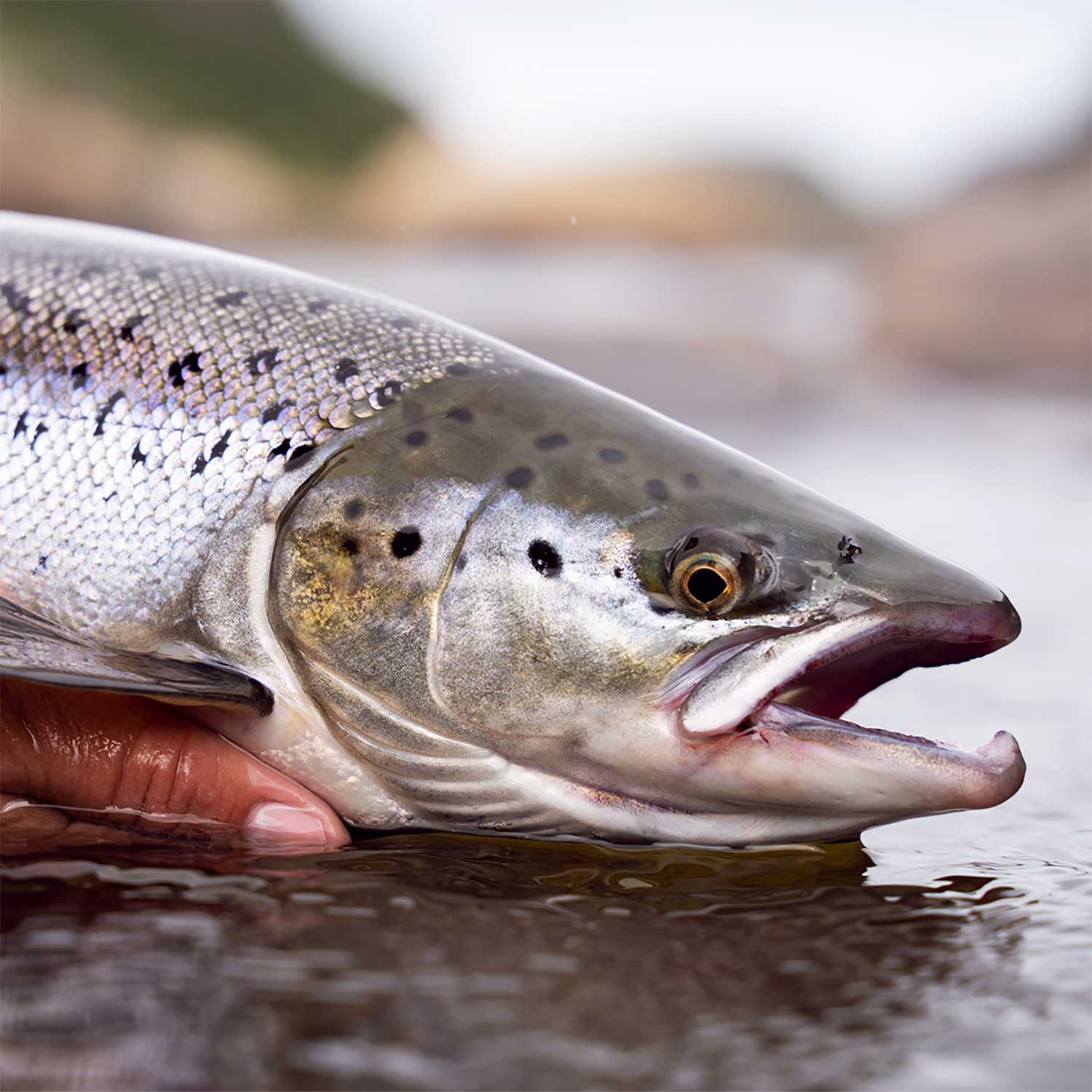
- Animal Equality has been granted permission to challenge the UK’s first fully on-land salmon mega-farm. Just 5% of cases make it this far.
- The farm plans to “produce” 5,000 tons of fish annually–the equivalent of approximately one million fish per year. This has sparked concerns for animals and the environment, due to the intensive energy and water usage of such sites.
- Experts warned of the high likelihood of “mass mortality events,” whereby fish die due to problems with the system. They also expressed concerns about the volume of waste produced.
- Advocates argue that Planning Committee members were instructed not to consider animal welfare when voting to approve the project, a factor they could have considered in their decision-making process.
- The High Court will now review whether this approval was legal.
On September 5, 2024, the UK’s High Court granted Animal Equality permission to challenge the approval of the country’s first on-land salmon mega-farm.
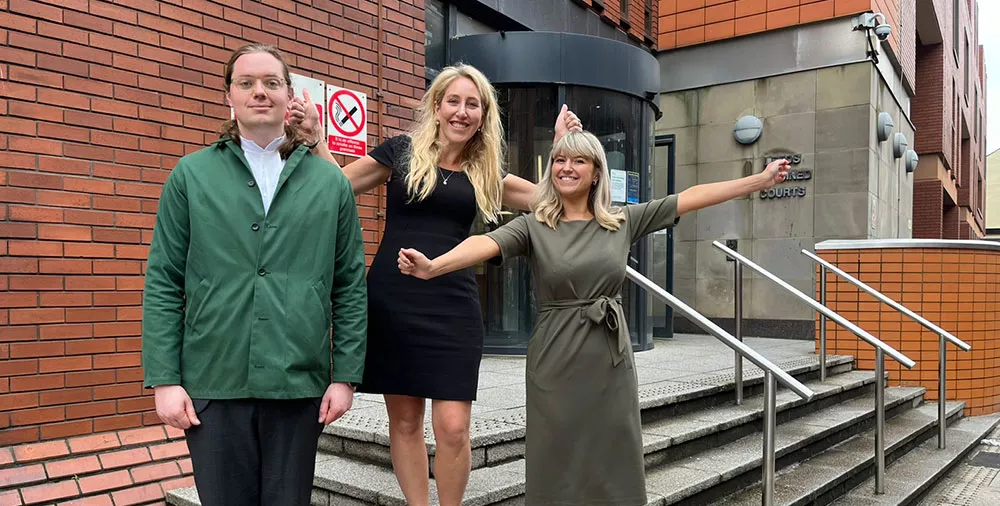
Despite warnings from experts, North East Lincolnshire Council approved the project in 2023. The farm–which aims to produce 5,000 tons of fish each year–would become one of the largest of its kind in the world.
Animal Equality is now taking legal action to halt the project, aiming to protect millions of fish from suffering and prevent environmental damage.
Approval despite concerns
In November, the Council’s Planning Committee voted 7-4 to approve the farm, despite warnings from experts and residents.
Abigail Penny—Executive Director of Animal Equality UK—and fish expert Mark Borthwick traveled ten hours to attend the meeting. They warned the Committee about the high risk of fish deaths and the potential environmental damage the farm could cause.
Borthwick argued that AquaCultured Seafood Limited—the company behind the farm—had unrealistic expectations. He raised concerns about the large amount of water the farm would need and the excessive waste it would produce.
Several Council members shared these concerns, particularly about the farm’s size and energy use. Despite these worries, the Committee approved the project.
Animal Equality’s legal challenge
Animal Equality argues that the Council’s approval was unlawful because the Committee had been instructed not to consider animal welfare in its decision.
Abigail Penny warned the Committee of the risks, citing a case where 1.5 million fish died at another on-land farm due to a system failure. Meanwhile, Councillor Hudson dismissed these concerns and the lives of animals who are at risk, saying, “…[I]f it fails, we’ll rebuild something else in future.”
Rising fish deaths in salmon farms
Animal Equality and Borthwick have pointed out the increasing number of fish deaths in UK salmon farms. Between January and November 2023, over 5.8 million salmon died in freshwater farms—a 43% increase from the previous year.
Similar problems have been seen globally. In 2023, 2 million fish died from gill disease at a land-based farm in Norway.
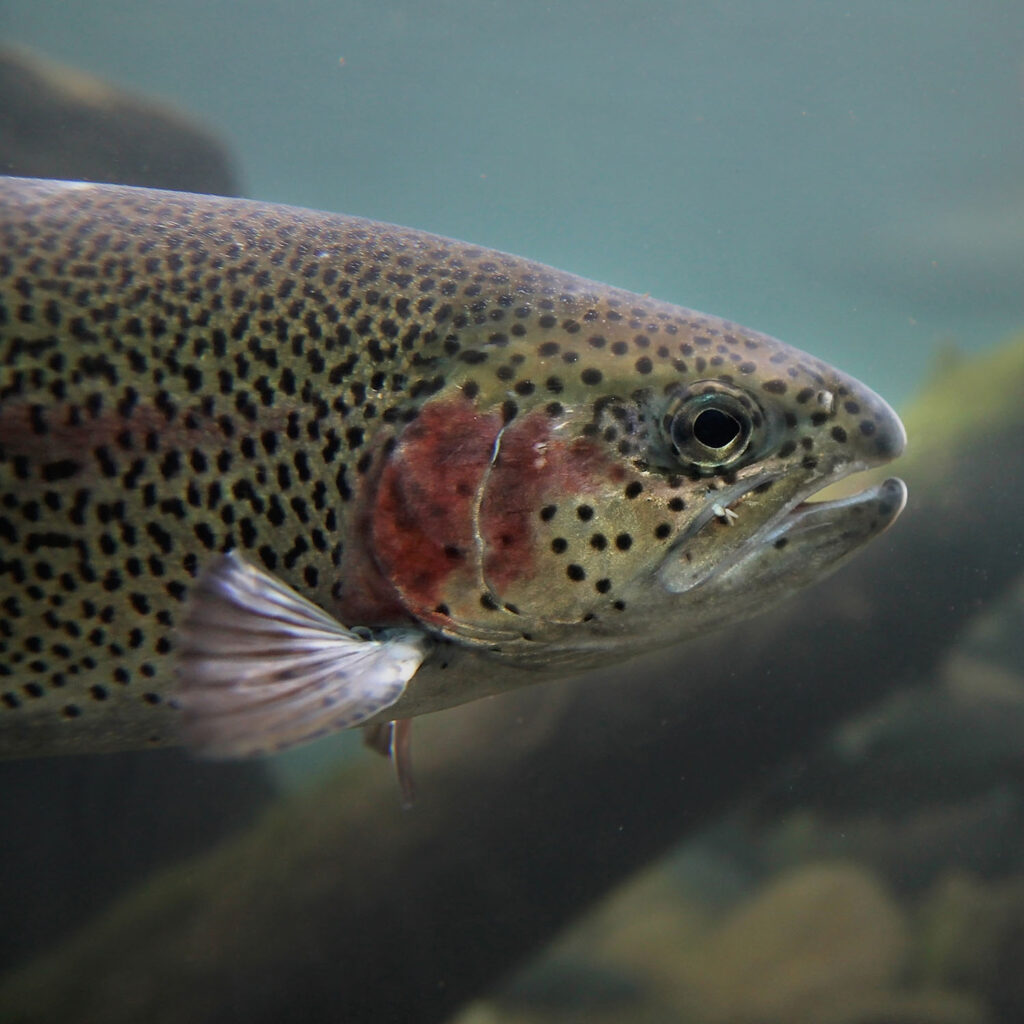
DEFEND FISH FROM ABUSE
Scientists confirm that fish have rich emotional lives and the capacity to feel.
Protect these sensitive beings by choosing plant‑based alternatives to animal food products.
Environmental impact
The farm is also sparking concerns about serious environmental risks. It’s located near a protected area home to rare species, like Wall Butterflies. The farm is projected to generate as much waste as a city of 400,000 people, posing a significant threat to local ecosystems.
The Council did not conduct an Environmental Impact Assessment, adding to the concerns. It also remains unclear how effective the company’s waste management system will be.
What’s next?
The High Court has allowed Animal Equality to move forward with its legal challenge. The case will now go to a full Judicial Review, where the court will decide if the Council’s approval was legal. If advocates are successful, the Council will need to reconsider the farm’s application.
Delaying the farm’s construction could prevent millions of fish from living in harsh, unnatural conditions.
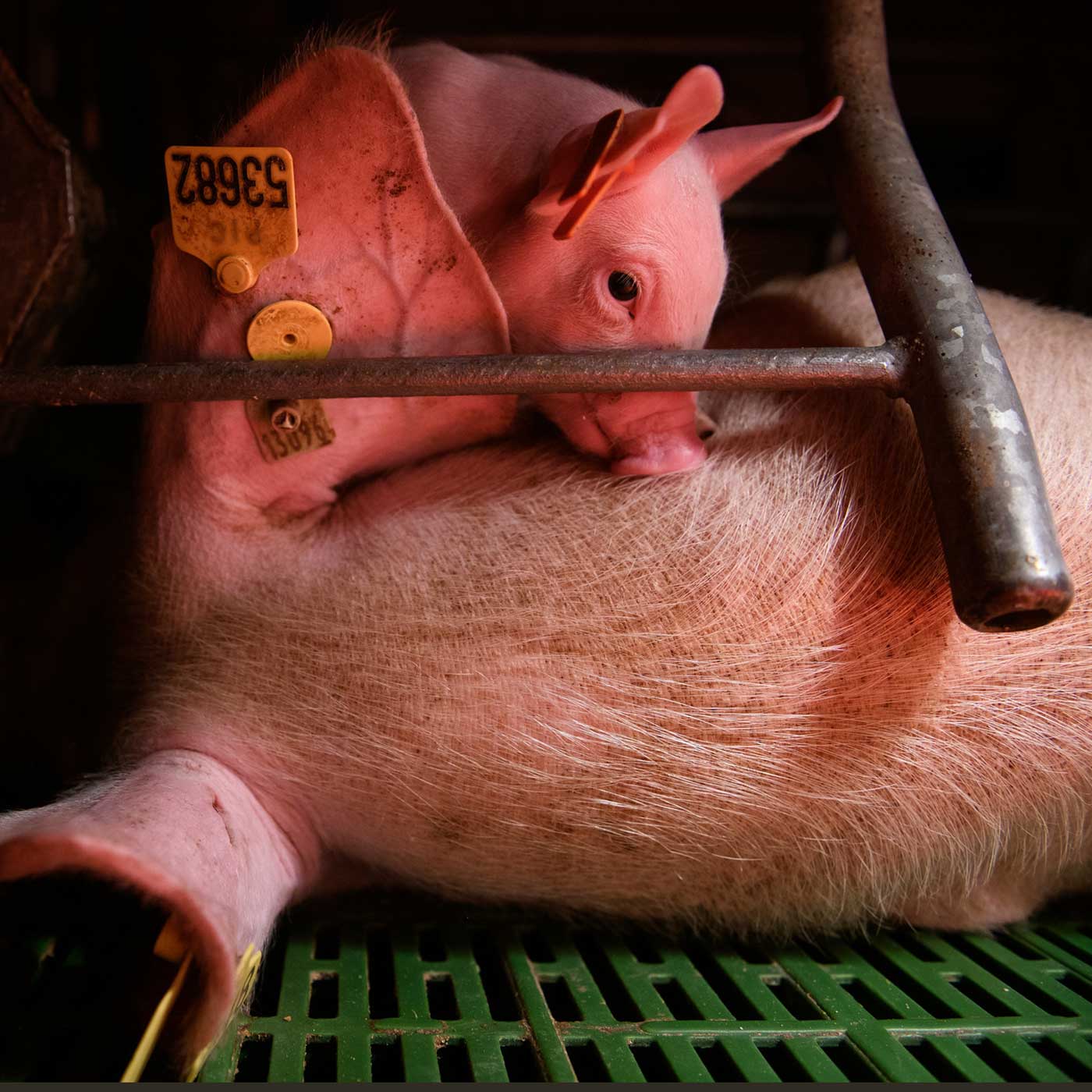
WILL YOU STEP UP FOR HER?
Her mother’s life was spent in a cage. She will suffer the same fate. But you can change this for millions of animals, currently trapped in factory farms.
Your support makes our investigations, campaigns, and legal work possible .
Only $25/month impacts 1,300 animals in a year.
How you can help
This legal battle is part of Animal Equality’s broader mission to protect fish, who currently lack strong legal protections. A key focus is stopping the growth of fish farming–especially in overcrowded sea cages–where many fish die before reaching slaughter.
The fight against the salmon mega-farm is just one part of Animal Equality’s larger campaign to end factory farming. Whether it’s fish, chickens, pigs, or cows, factory farms lead to overcrowding, disease, and immense suffering. In the U.S., 99% of farmed animals endure these harsh conditions.
You can help end this cruelty by signing Animal Equality’s petition to stop factory farming in the United States.
You can end this cruelty! Please sign our petition calling for ending factory farming in the United States.

